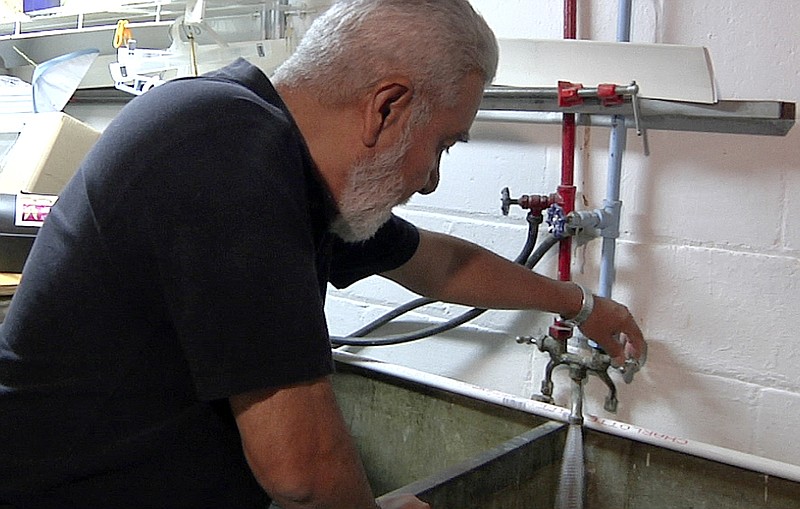Our final installment of a home's fixer-upper repairs concerns the sometimes-nastiest and potentially-harmful of subjects: an unfinished basement that houses the washer/dryer, among other problematic areas.
Destroy lint buildup. Cleaning the dryer vent (appliance is often found in the basement) is imperative. Buildup near the dryer's motor or heat source can ignite, causing a fire which can lead to a bigger fire that might engulf the entire house. At the very least, a clogged dryer takes longer to dry clothes. Be sure to empty the lint trap before every load of laundry.
At least yearly, thoroughly clean your dryer and its vent duct system by unplugging the machine (and the gas valve if it has one). Pry off the front's access panel and carefully vacuum around the motor and the heating element. The – again carefully – disconnect the vent duct tubing from the back of the dryer and use a dryer vent brush that also cleans refrigerator coils. (Mine cost $10.) This brush can pull out any and all accumulated lint; perform this after every other load. It's also a good idea to vacuum behind the dryer on a regular basis and to take put the lint filter and run it under the faucet. If water doesn't run through easily, use a stiff brush to scrub it with hot water and a small amount of laundry detergent.
Test the sump pump. Once the pump breaks and water floods the basement is no time to learn the sump pump is broken. Remove the basin cover and dump in a few buckets of water. If it doesn't run or it expels the water, professional help is necessary, unfortunately.
Instead, buy a battery-powered alarm for about $20. The alarm sounds if water reaches the basin's top. On the other hand, if you're not at home when the alarm sounds, maybe it's better to spend $100 for a system that contacts you when the pump fails.
Scoop out the water-softener tank. Impurities can collect in the bottom of the tank and will clog and shorten its lifespan. When the salt level is low, scoop out any gunk once a year. Be sure not to use rock salt instead of water-softener salt. It contains more impurities to clog up and only after approximately $600 later for a new water softener could you see any relief in sight.
Shut off the water when you go on vacation. Our current home is the second one where we've spent the money to move the water shut-off valve to the house. Our previous home flooded while we were on vacation and an unholy mess almost claimed our sanity! Thankfully, once we moved the valves (in both homes) and shut off the water each time we left for even a couple of days, we had no need to worry again about that horrific situation.
A word of caution, however: if a valve isn't used for several years, mineral deposits can make it impossible to shut. To solve the problem beforehand, locate the valves for your washer, ice maker, water heater and so forth; turn the handle clockwise about a quarter turn every year or so and then turn it back. (If your water is very hard, it's a good idea to repeat this step more often.)
Check window wells. Leaves, water, etc. tend to collect in basement window wells so it's important they be cleaned out. If you're not a big fan of cleaning gunk, protect the windows with covers, found at home centers for about ten bucks each.)
Contact Ellen Phillips at consumerwatch@timesfreepress.com.

